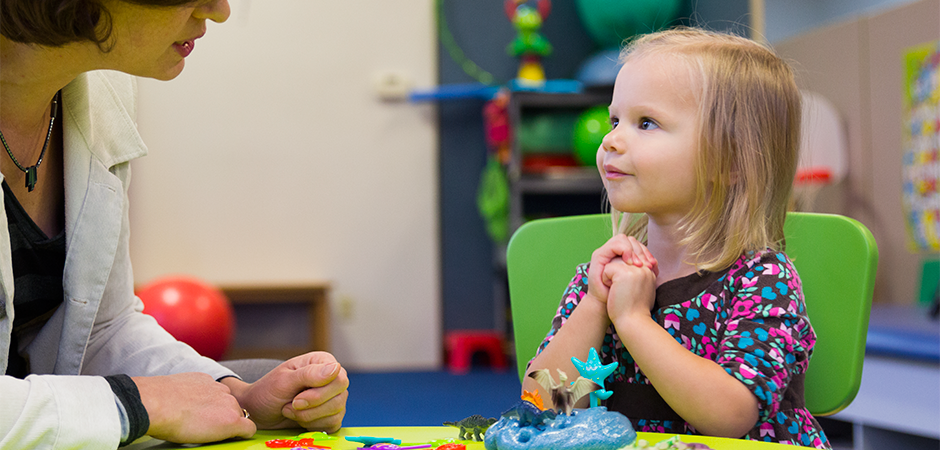By, Kevin J. Koenigsknecht, MSOT, OTRL
As Occupational Therapists (OT) we often asked what is the difference between occupational therapy and physical therapy? Or our personal favorite is...“Occupational therapy? I don’t need help finding a job, I already have one.” Our profession has been around for over 100 years, yet it is not widely known what we do and there are many reasons for that. One reason is that we bridge gaps and overlap with our more widely known therapists (physical and speech). It may also have to do with the fact that we do so many different things and we treat all ages, and all conditions. Nonetheless, we hope that this blog can help everyone better understand what occupational therapy is and how we at FYZICAL can benefit you.
 Occupational Therapy in its simplest term is a profession, which treats an individual across the lifespan. It takes a holistic view of the client finding and treating the physical, emotional, neurodevelopmental or cognitive deficits with the use of their meaningful everyday tasks to promote independence, health and well-being. Seems easy enough. However, let us take a closer look at the line “… use of their meaningful everyday tasks (occupations)”, because that is the essence of our profession.
Occupational Therapy in its simplest term is a profession, which treats an individual across the lifespan. It takes a holistic view of the client finding and treating the physical, emotional, neurodevelopmental or cognitive deficits with the use of their meaningful everyday tasks to promote independence, health and well-being. Seems easy enough. However, let us take a closer look at the line “… use of their meaningful everyday tasks (occupations)”, because that is the essence of our profession.
Our profession believes that we possess life as having 8 different major occupations. The 8 occupations include: Activities of Daily Living (ADLs), Instrumental Activities of daily living (IADLs), Rest/sleep, education, work, play, leisure and social participation. Within each category there are some underlying tasks to better understanding the occupation being discussed. So, let us take a closer look at these occupations.
First, there is Activities of Daily Living (ADLs), which can be defined as what is necessary in our every day to take care of ourselves. These tasks include but are not limited to bathing, showering, toileting, dressing, feeding, and functional mobility.
Next, Instrumental Activities of Daily Living (IADLs) can be better described as those activities to support daily life within the home and community. These occupations include some of the following: driving/community mobility, communication management, pet care, child rearing, caring for others, financial management, meal preparation, religious and spiritual activities, safety and shopping.
Rest/sleep is simply any task related to obtaining or restoring sleep to support health. These include resting, relaxation, sleep preparation and sleep participation.
Education includes activities needed for learning and participating in the educational environment. These include both formal and informal educational experiences.
Work is described as labor or exertion to create an end product and can be done with or without financial compensation. Within this section some of the tasks to better understand include employment interests and pursuits, employment seeking and acquisition, job performance, retirement prep/adjustment, and volunteering
Play is any spontaneous or organized activity that provides enjoyment to the client. This includes play participation and play exploration. This is a major occupation with our younger population.
Leisure as I like to define it is play for adults. However, the profession describes it a little better as an activity that is intrinsically motivated. Within this occupation we take a closure look at leisure exploration and leisure participation. We often find this category to include activities such as fishing, camping, golfing, sewing and crafting as popular leisure activities.
Social participation is each interaction you have throughout the day including being with community, family members, peers and friends. During our world crisis we are showing truly how evolved and resilient we are as people, by finding ways to be included such as facetime, zoom calls, drive by birthday parades and much more.
As occupational therapists, we see all sorts of conditions across the lifespan. With each one of our clients we make sure to analyze not only the physical, emotional, developmental or cognitive deficits, but we truly strive to find what is currently difficult for you based on your diagnosis. We want to find those meaningful occupations that we can help you with. We analyze each of those eight overarching occupations, we try to incorporate them into our sessions as treatment and get you to the level of independence desired. Each one of our treatment plans are individualized to the client because we all have different occupations in our lives that we find meaningful.
We hope this blog was not only informative, but eye opening and hope you have a greater understanding of occupational therapy and the clients we treat. If you would like to know more about how our FYZICAL therapists can help you, your child, or a family member please contact our office.
